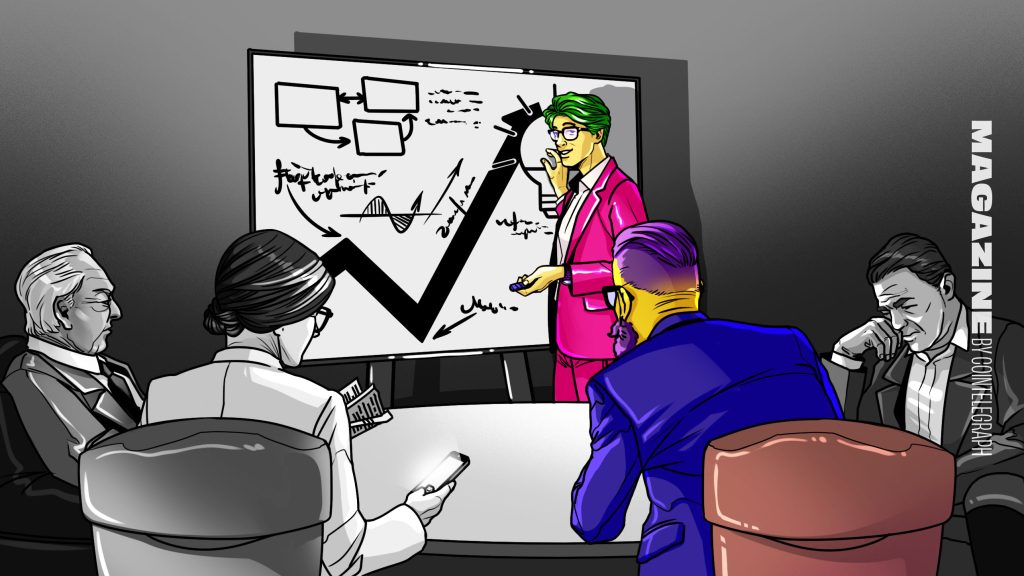Josh Benaron, founder of Irys, recalls being ridiculed when he tried to raise funds for his crypto venture at 19. For years, he’s had to fight to be taken seriously.
“Before becoming a founder, I struggled to get access to opportunities within crypto. I was introduced to the [chief technology officer] of one of the largest European CEXs, and he practically laughed me out of the room because of my age,” Benaron tells Magazine.
“In general, when you raise money, being young doesn’t help, as they associate youth with inexperience and immaturity.”
Silicon Valley has glorified young founder success stories, but data shows tech founders generally aren’t that young. The average age of a founder in traditional tech is 42.
However, blockchain technology and its permissionless ethos have slowly changed this. Vitalik Buterin, the poster boy of crypto, was 21 when he co-founded Ethereum.

Young guns with a big chip on their shoulder
“It’s both a blessing and a curse,” said 23-year-old Chunda McCain, co-founder of Nucleus, a plug-and-play platform that allows rollups and appchains to offer yield on bridged assets to attract users.
McCain said a venture fund once told him they didn’t think he could compete in the hyper-competitive DeFi market.
“They just couldn’t get past my age. There was always an expectation that I was a child playing in an adult’s game.”
“That chip on our shoulder that we internalized from those types of comments was the thing that made sure we always checked ourselves, knowing people would underestimate us,” he says.
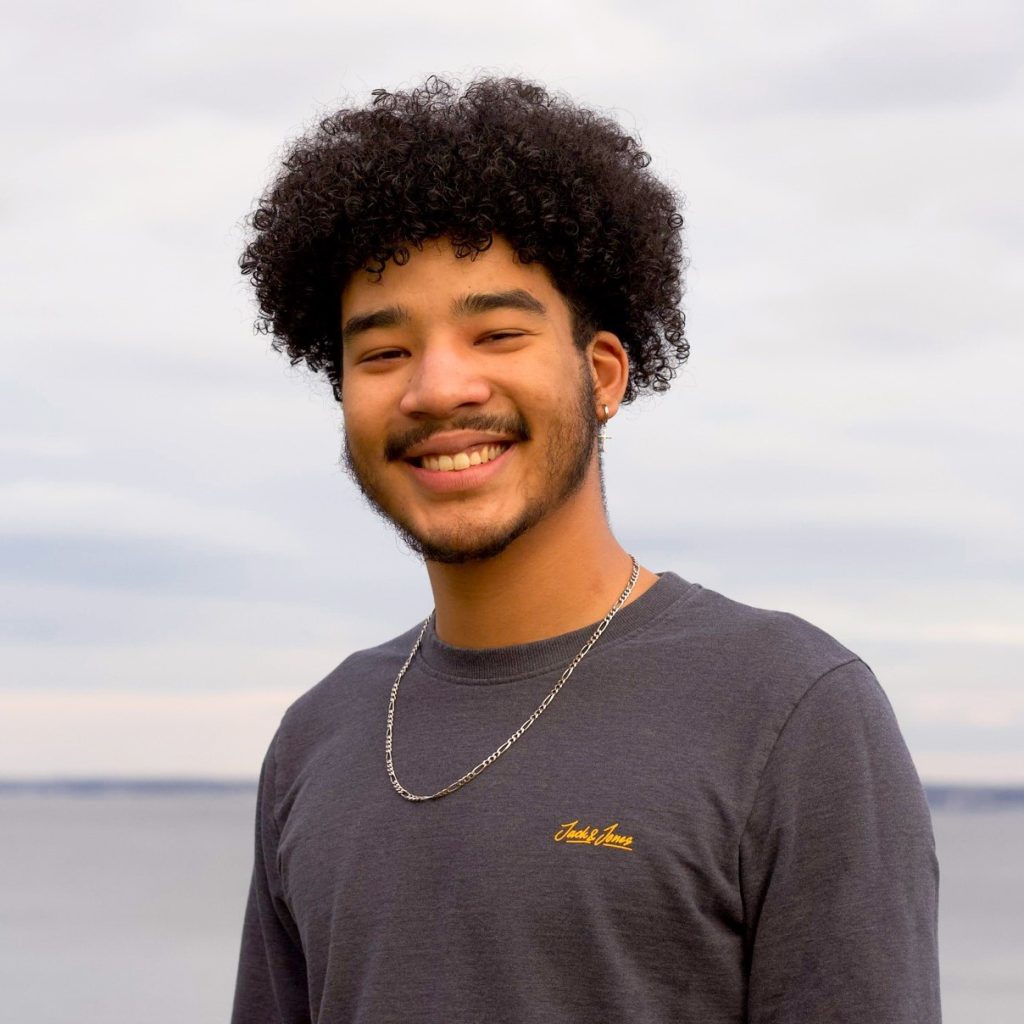
Benaron says he’s also had to fight to be respected.
However, he says that while the concerns aren’t necessarily unfounded, VCs aren’t doing a good enough job identifying young founders with potential.
Luckily, he eventually found some that allowed him to raise $200,000 in pre-seed at 19, and he’s since raised more than $15 million.
Running a crypto startup for dummies
Then there are the things that you don’t get taught in school, like how to run a company with living, breathing employees, or how to talk to politicians.
Benaron says young founders don’t yet have good mental models for how a team should run, forcing them to work from instinct and first principles thinking.
“It means that you become highly critical of ‘standard practices.’ I hired people in the past who were older than me, and they’d come in and try to change all the processes for process’s sake. It ruined our company for a period of time,” he recalls.
McCain says he struggled most at the start when he was required to step into a position of authority, with money, jobs and livelihoods on the line.
He overcame it by failing and learning quickly, maintaining integrity and ultimately removing the ego from the equation, he says.
“The pushbacks happen much less, if not at all now, and I do credit crypto people for being open-minded, as once you do have a track record and proven yourself in the market, they’re willing to look past age.”
Morpho founder took investor calls between classes
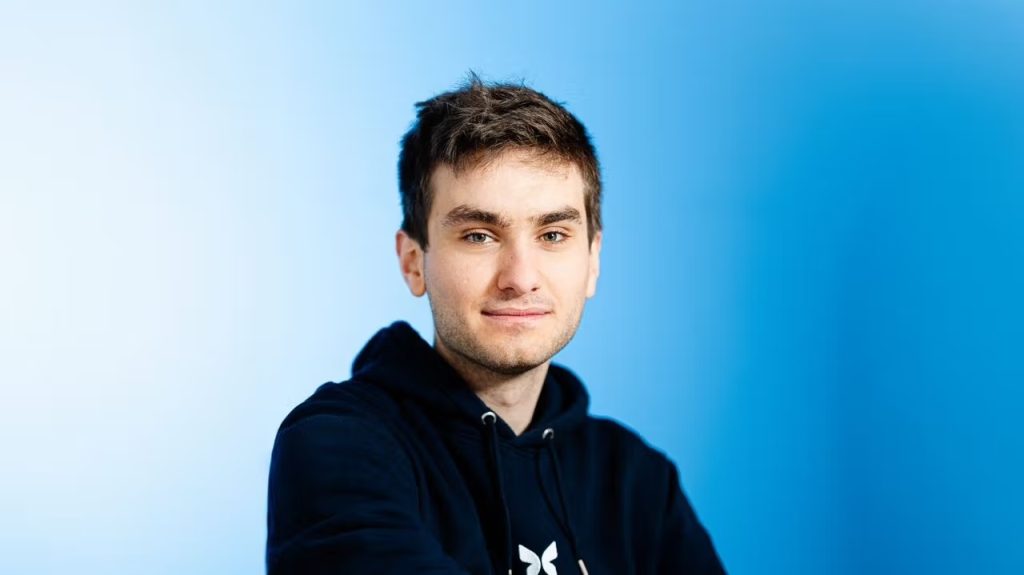
The story ran differently for Paul Frambot, who founded DeFi lending protocol Morpho in his dorm room during his second year of engineering school.
Frambot was just 19 at the time, recruiting fellow students as co-founders, and going up against the traditional path of an entrepreneur in France. Morpho allows anyone to earn yield and borrow assets.
“I still have impostor syndrome,” he admits to Magazine, but adds he never found age to be prohibitive.
“In fact, it helped when pitching American VCs. There’s a real appetite for backing young talent and new ideas. It helped that I was able to approach things from first principles, without being anchored by how things are usually done.”
“The magic was pure innocence. I was on investor calls in between my classes. No one ever told me how to fundraise,” Frambot says.
Frambot raised $1 million, followed by $20 million six months later. Crypto venture capital fund a16z hadn’t invested in France in seven years, prior to Morpho.
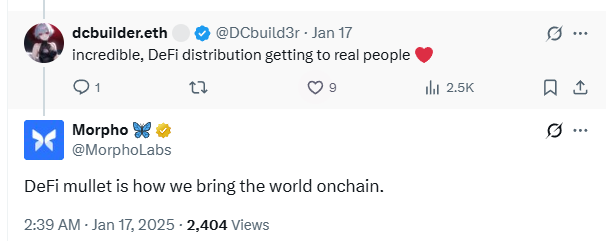
Morpho is now the third-largest DeFi lending platform, backed by $50 million and integrated into Coinbase.
Crypto founder starts just after the Terra ecosystem collapsed
Griffin Dunaif also started his crypto company in college, studying computer science at Stanford. He’d been hacking since fifth grade and was an avid gamer, contrasting with his interest in ancient history.
Dunaif cites an Ariana Grande concert in Fortnite and an ancient Assyrian history class as sparking his early intrigue in blockchain.
“We have a digital society being built and digital law being built. These two things will come together to allow us to really have civilization in different digital spaces. I wanted to contribute to that in whatever way possible,” Dunaif says.

The 24-year-old launched Halliday in 2022, which allows users to automate any onchain workflow, creating business logic on or across blockchain in hours instead of years.
Dunaif raised $26 million — securing $6 million at 23 years old and $20 million a year later — and has gone on to build a team of around 20 people in New York City and San Francisco.
“If you just have enough determination to do it, you’ll just get through it,” he says.
Dunaif says the journey hasn’t been easy; there was a lot to learn in a short period of time.
“The day we got wired our money was when Terra Luna collapsed. The second we started, the entire market evaporated, followed by FTX right after that.”
Then there’s the need to become an expert on securities laws, lending licenses, custody and control, and behavioral economics.
“I’ve practically got my JD in law at this point,” he says. (JD stands for Juris Doctor, a postgraduate degree required to practice law in the United States.)
Learn everything and have plenty of grit
Founders might be speaking to crypto natives one day, and then chartered banks, associations or members of Congress on Capitol Hill the next.
“Crypto companies are very multifaceted. We’re a Series A company and have a general counsel, developer relations, and a head of marketing already. This is rare outside of crypto. However, in crypto, these are all mission-critical.”
Dunaif admits that building truly decentralized and self-custodial products is “an order of magnitude more difficult” but also the “most exciting generational opportunities.”
The next Vitalik Buterin?
Nucleus’ McCain believes the days of the young, fresh out of college dropouts in crypto are over, but it is a good sign of a maturing industry.
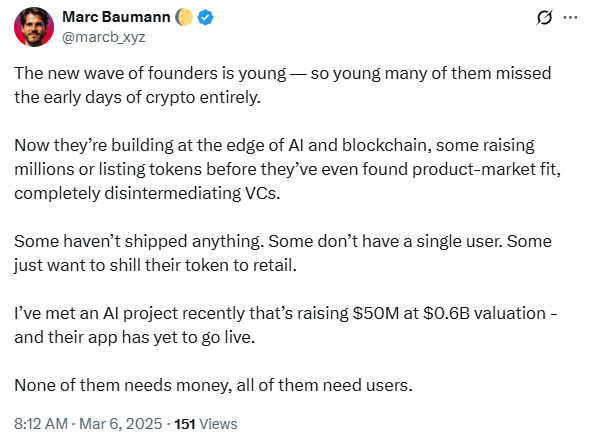
Developer growth in the market has stalled, and the founders emerging in the 2020-21 era, who may have been fresh out of college or had a couple of years under their belt, are now considered OGs.
“The bar for being able to generate product-market fit and build a wedge in the industry is growing higher and higher, says McCain, adding that the days of “build it and they will come” are over.
“You see this gap widening where you need to build time in the industry to have relationships, partnerships and distribution in order to really break into the industry.”
“We haven’t seen many founders establish themselves that came out of the class of late 2022, 2023, 2024.”
He says that these days, it feels like there’s a different graduating class of founders, where the standard age is around 28 to 33 years old.


Amanda Smith
Worldcoin’s less ‘dystopian,’ more cypherpunk rival: Billions Network
Could using ZK-proofs to verify IDs help resolve privacy concerns related to the UK’s Digital ID and Australia’s social media age limits?
Read moreDecentralized identity: Proving it’s really you in the 21st Century
“An NFT of a diploma in your crypto wallet, for instance, would turn into a permanent academic certification.”
Read moreWeb3 games shuttered, Axie Infinity founder warns more will ‘die’: Web3 Gamer
